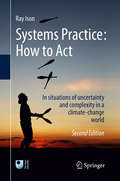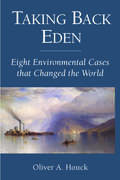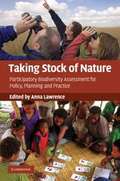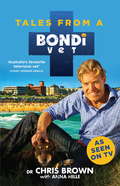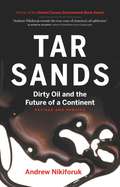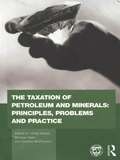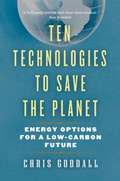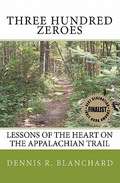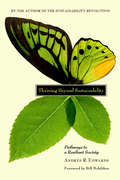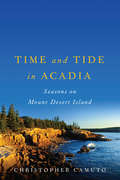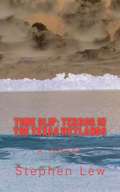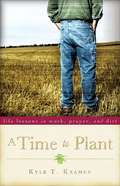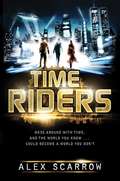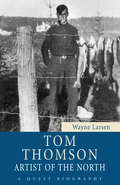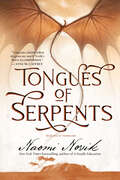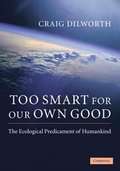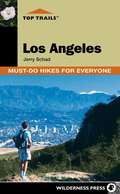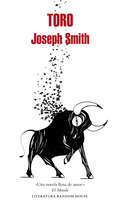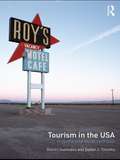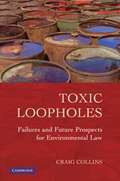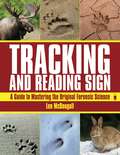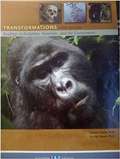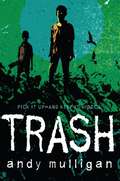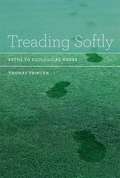- Table View
- List View
Systems Practice: How to Act
by Ray IsonIt is now accepted that humans are changing the climate of the Earth and this is the most compelling amongst a long litany of reasons as to why, collectively, we have to change our ways of thinking and acting. Most people now recognise that we have to be capable of adapting quickly as new and uncertain circumstances emerge: this capability will need to exist at personal, group, community, regional, national and international levels, all at the same time. Systems Practice is structured into four parts. Part I introduces the societal need to move towards a more systemic and adaptive governance against the backdrop of human-induced climate change. Part II unpacks what is involved in systems practice by means of a juggler metaphor; examining situations where systems thinking offers useful understanding and opportunities for change. Part III identifies the main factors that constrain the uptake of systems practice and makes the case for innovation in practice by means of systemic inquiry, systemic action research and systemic intervention. The book concludes with Part IV, which critically examines how systems practice is, or might be, utilised at different levels from the personal to the societal. The development of our capabilities to think and act systemically is an urgent priority and Systems Practice aims to show how to do systems thinking and translate that thinking into praxis (theory informed practical action) which will be welcomed by those managing in situations of complexity and uncertainty across all domains of professional and personal concern.
Taking Back Eden: Eight Environmental Cases that Changed the World
by Oliver A. HouckTaking Back Eden is the gripping tale of an idea--that ordinary people have the right to go to court to defend their environment--told through the stories of lawsuits brought in eight countries around the world. Starting in the United States in the l960's, this idea is now traveling the planet, with impacts not just on imperiled environments but on systems of justice and democracy. It has brought people back into the question of governing the quality of their lives. Author Oliver Houck describes the sites under contention in their place and time, the people who rose up, their lawyers, strategies, obstacles, setbacks and victories. Written for general readers, students, and lawyers alike, Taking Back Eden tells the stories of a lone fisherman intent on protecting the Hudson River, a Philippine lawyer boarding illegal logging ships from the air, the Cree Indian Nation battling for its hunting grounds, and a civil rights attorney who set out to save the Taj Mahal. The cases turn on Shinto and Hindu religions, dictatorships in Greece and Chile, regime changes in Russia, and on a remarkable set of judges who saw a crisis and stepped up to meet it in similar ways. Spontaneously, without communication among each other, their protagonists created a new brand of law and hope for a more sustainable world.
Taking Stock of Nature: Participatory Biodiversity Assessment for Policy, Planning and Practice
by Anna LawrenceIn a world of increasing demands for biodiversity information, participatory biodiversity assessment and monitoring is becoming more significant. Whilst other books have focused on methods, or links to conservation or development, this book is written particularly for policy makers and planners. Introductory chapters analyze the challenges of the approach, the global legislation context, and the significance of the Millennium Ecosystem Assessment. Specially commissioned case studies provide evidence from 17 countries, by 50 authors with expertise in both biological and social sciences. Ranging from community conservation projects in developing countries to amateur birdwatching in the UK, they describe the context, objectives, stakeholders and processes, and reflect on the success of outcomes. Rather than advocating any particular approach, the book takes a constructively critical look at the motives, experiences and outcomes of such approaches, with cross-cutting lessons to inform planning and interpretation of future participatory projects and their contribution to policy objectives.
Tales from a Bondi Vet
by Chris BrownCurrently starring in CBS's hit series Dr Chris: Pet Vet in the US and delighting audiences in Australia as the host of I'm A Celebrity...Get Me Out Of Here!, Chris Brown is a man of many talents but one thing will always stay constant in his life; his love of animals. For this son of a country vet, animals have been a part of Dr Chris Brown's life for as long as he can remember - so it's not surprising that he has followed in his father's veterinary footsteps. But Chris's life has one twist his dad never had to deal with ... a TV camera crew following him around to capture the day-to-day life of an urban vet. Tales from a Bondi Vet is based on the hit Australian television show Bondi Vet, which has become enormously popular around the world and made Dr Chris Australia's best loved vet. It tells his story along with the funny, strange and sometimes heartbreaking tales of his patients and their owners.From the moment a trembling Rottweiler called Zenna is brought into his clinic we follow the progress of Chris's many patients as he treats anything from poisoning, snake bite, near-drowning and trauma to cosmetic surgery, and love gone wrong. On call twenty-four hours a day, anything can happen ... and often does
Tar Sands
by Andrew NikiforukTar Sands critically examines the frenzied development in the Canadian tar sands and the far-reaching implications for all of North America. Bitumen, the sticky stuff that ancients used to glue the Tower of Babel together, is the world's most expensive hydrocarbon. This difficult-to-find resource has made Canada the number-one supplier of oil to the United States, and every major oil company now owns a lease in the Alberta tar sands. The region has become a global Deadwood, complete with rapturous engineers, cut-throat cocaine dealers, Muslim extremists, and a huge population of homeless individuals.In this award-winning book, a Canadian bestseller, journalist Andrew Nikiforuk exposes the disastrous environmental, social, and political costs of the tar sands, arguing forcefully for change. This updated edition includes new chapters on the most energy-inefficient tar sands projects (the steam plants), as well as new material on the controversial carbon cemeteries and nuclear proposals to accelerate bitumen production.
The Taxation of Petroleum and Minerals: Principles, problems and practice
by Philip Daniel Michael Keen Charles McphersonThere are few areas of economic policy-making in which the returns to good decisions are so highâ "and the punishment of bad decisions so cruelâ "as in the management of natural resource wealth. Rich endowments of oil, gas and minerals have set some countries on courses of sustained and robust prosperity; but they have left others riddled with corruption and persistent poverty, with little of lasting value to show for squandered wealth. And amongst the most important of these decisions are those relating to the tax treatment of oil, gas and minerals. This book will be of interest to Economics postgraduates and researchers working on resource issues, as well as professionals working on taxation of oil, gas and minerals/mining.
Ten Technologies to Save the Planet
by Chris GoodallRespected, authoritative, award-winning author Chris Goodall tackles global warming reversal in this engaging and balanced book. Ten Technologies to Save the Planet - popular science writing at its most crucial - is arguably the most readable and comprehensive overview of large-scale solutions to climate change available. Goodall profiles ten technologies with the potential to slash global greenhouse emissions, explaining how they work and telling the stories of the inventors, scientists, and entrepreneurs who are driving them forward. Some of Goodall's selections, such as the electric car, are familiar. Others, like algae and charcoal, are more surprising. Illustrated with black-and-white photos and simple charts, Ten Technologies to Save the Planet combines cutting-edge analysis with straightforward explanations about pros and cons, and debunks myths along the way.
This Tree Counts!
by Alison Formento Sarah SnowIf you listen carefully to the lone tree behind Oak Lane School, it has a story to tell, about . . . one owl, two spiders, three squirrels, four robins, five caterpillars, six ants, seven crickets, eight flies, nine ladybugs, and ten earthworms, all living safe and free in their tree home. What does this tree need? The children know--it needs friends! Alison Formento's gentle story, illustrated with Sarah Snow's beautiful papercuts, whispers important ideas to all young tree lovers.
Three Hundred Zeroes: Lessons Of The Heart On The Appalachian Trail
by Dennis R. BlanchardDennis Blanchard's promise to his brother haunted him for over forty years. Finally, when there were no more excuses, he set out on the Appalachian Trail to fulfill that promise. He learned that walking in the wilderness can reconnect one with a Norman Rockwell America that at times seems long lost and forgotten. The difficulties encountered walking over 2,200 miles are easily underestimated and trouble can begin long before setting a first step on the trail. Blanchard's introspective demonstrates that bears, rattlesnakes and challenging terrain may be far less formidable than some of life's more subtle dangers.
Thriving Beyond Sustainability
by Andres R. Edwards Bill MckibbenEvery fifteen seconds on our Earth, a child dies from waterborne disease. Three times an hour, another species becomes extinct. Each day we consume eighty-five million barrels of oil and pump twenty-three million tons of carbon dioxide into an already warming atmosphere. But against this bleak backdrop, beacons of hope shine from thousands of large and small initiatives taking place everywhere from isolated villages to major urban centers.Thriving Beyond Sustainability draws a collective map of individuals, organizations, and communities from around the world that are committed to building an alternative future--one that strives to restore ecological health; reinvent outmoded institutions; and rejuvenate our environmental, social, and economic systems. The projects and initiatives profiled are meeting the challenges of the day with optimism, hope, and results, leading the way in: Relocalization Green commerce Ecological design Environmental conservation Social transformation Overflowing with inspiration, the stories and ideas in these pages will cause the most chronic pessimist to see the glass as half full--to move beyond a perception of surviving with scarcity to one of flourishing with abundance. The comprehensive resource section provides the tools for everyone to become a catalyst for change.Andres R. Edwards is the author of The Sustainability Revolution, which has sold over twenty thousand copies. He is an educator, media designer, LEED-accredited green building and sustainability consultant, and the founder of EduTracks, a firm specializing in developing education programs and providing consulting services on sustainable practices.
Time and Tide in Acadia: Seasons on Mount Desert Island
by Christopher CamutoCamuto delivers insights on Mount Desert Island, a place of stunning beauty and natural wonders. Mount Desert Island and Acadia National Park have been described as the climax of the coast of Maine. Millions are drawn every year to the stunning beauty of this rocky landscape of spruce-fir forest and granite islands. Some, like nature writer Christopher Camuto, never stop coming back. In Time and Tide in Acadia the author draws on years of walking Mount Desert's summits and shorelines, canoeing its marshes, kayaking its tidal waters, and visiting its outer islands. To this task Camuto brings an appetite for observing wildlife and landscape with considerable originality, a regard for history and indigenous perceptions of nature, a keen interest in exploring the psychological and philosophical appeal of nature, and a writer's love of language. As in his previous, highly praised books, Camuto fulfills his promise to give the reader innumerable vantages on the nature of a remarkable place that it takes time to get to know.
Time Slip: Terror in the Texas Wetlands
by Stephen D. LewFour Texas teens stumble upon a living nightmare when an electrical storm creates a time portal. The group unintentionally journeys 158 years back in time where they are held captive by a band of Karankawa Indians. On the desolate Texas wetlands, the mismatched teens must confront their inner-demons, survive the hostile environment, and find a way to work together to get back home.
A Time to Plant: Life Lessons in Work, Prayer, and Dirt
by Kyle T. KramerIn this book, Kyle Kramer recounts the gritty story of how he came to experience the joys of real community through a journey of honest reckoning with his own ambitions. "A Time to Plant" is a deeply human story of one man's attempt to make simple living a reality as a spiritual discipline for himself, as a model for his children, and for the good of creation.
Timeriders
by Alex ScarrowMaddy, Liam, and Sal were saved from certain death to become agents for TimeRiders, a group created to stop time travel from destroying the world. When a new threat appears-with evil tracing back to World War II- the TimeRiders go back in time to Nazi Germany and then forward into an ever-shifting present, to fulfill their destinies as keepers of time.
Tom Thomson: Artist of the North
by Wayne LarsenTom Thomson (1877-1917) occupies a prominent position in Canada’s national culture and has become a celebrated icon for his magnificent landscapes as well as for his brief life and mysterious death. The shy, enigmatic artist and woodsman’s innovative painting style produced such seminal Canadian images as The Jack Pine and The West Wind, while his untimely drowning nearly a century ago is still a popular subject of fierce debate. Originally a commercial artist, Thomson fell in love with the forests and lakes of Ontario’s Algonquin Park and devoted himself to rendering the north country’s changing seasons in a series of colourful sketches and canvases. Dividing his time between his beloved wilderness and a shack behind the Studio Building near downtown Toronto, Thomson was a major inspiration to his painter friends who, not long after his death, went on to change the course of Canadian art as the influential - and equally controversial - Group of Seven.
Tongues of Serpents: A Novel of Temeraire (Temeraire #6)
by Naomi NovikNaomi Novik "s stunning series of novels follow the global adventures of Captain William Laurence and his fighting dragon Temeraire as they are thrown together to fight for Britain during the turbulent time of the Napoleonic Wars. Convicted of treason and stripped of rank and standing, Temeraire and Lawrence are transported to the prison colony at New South Wales. With them travel three dragon eggs destined to be handed over to second-rate officers willing to accept so remote an assignment " including one former acquaintance, Captain Rankin, whose cruelty once cost a dragon its life. They arrive at a young Australian colony in turmoil after the overthrow of the military governor, William Bligh " formerly Captain Bligh, late of HMS Bounty. Eager to escape the political quagmire, Laurence and Temeraire accept a mission to pioneer a route through the forbidding Blue Mountains and into the interior of Australia. But when one of the dragon eggs is stolen, the surveying expedition becomes a desperate race to recover it before the dragonet hatches " a race that leads to a shocking discovery and a dangerous new obstacle in the global war between Britain and France.
Too Smart for Our Own Good: The Ecological Predicament of Humankind
by Craig DilworthWe are destroying our natural environment at a constantly increasing pace, and in so doing undermining the preconditions of our own existence. Why is this so? This book reveals that our ecologically disruptive behaviour is in fact rooted in our very nature as a species. Drawing on evolution theory, biology, anthropology, archaeology, economics, environmental science and history, this book explains the ecological predicament of humankind by placing it in the context of the first scientific theory of our species' development, taking over where Darwin left off. The theory presented is applied in detail to the whole of our seven-million-year history. Due to its comprehensiveness, and in part thanks to its extensive glossary and index, this book can function as a compact encyclopadia covering the whole development of Homo sapiens. It would also suit a variety of courses in the life and social sciences. Most importantly, Too Smart for Our Own Good makes evident the very core of the paradigm to which our species must shift if it is to survive. Anyone concerned about the future of humankind should read this groundbreaking work.
Top Trails: Los Angeles
by Jerry SchadFrom the Santa Monica Mountains to Angeles National Forest, from Orange County to the San Bernardino and the San Jacinto Mountains,Southland hiking guru Jerry Schad describes the "must do" trails in the greater Los Angeles area. The highly visual, easy access guidebook includes a range of trails for all levels and abilities suitable for walking, hiking, running, and mountain biking. Each trail has a custom map, "don't get lost" trail milestones, elevation profiles, and the full range of trail features so hikers, cyclists, dog walkers and stroller users know exactly what to expect. This new edition describes a total of 57 trips and nine new trails including Corral Canyon in Malibu, Sycamore Canyon Waterfall, Oat Mountain in the Santa Susana Mountains, and Cobal Canyon Loop near Claremont.
Toro
by Joseph SmithUn toro vive tranquilo en una granja, su vida cotidiana supone largas estancias en un corral, donde se dedica a la contemplación de las matas, de la tierra y de las estrellas. Y sin embargo, en poco tiempo, se pone en juego una lucha de fuerzas entre el animal y el hombre. Dignidad y orgullo. Un toro cautivo y consciente de su naturaleza de bestia. La lucha entre la posibilidad de huir y el miedo a la libertad. Esta es una novela que habla de la condición humana y de la fuerza animal y de la naturaleza."Es difícil explicar la maravillosa conmoción que provoca la lectura de El lobo. Desde la primera a la última de sus breves pero intensísimas páginas, llenas de imágenes cautivadoras y símbolos, el lector sigue sobrecogido la peripecia de ese animal terrible, hambriento e inicialmente despiadado."El País"Una novela espléndida e intensa."La Vanguardia"Escribe con una intensidad que deja al lector pasmado."Público"Un éxito constatado por lectores y crítica."La RazónUno de los mejores 50 libros de 2010 según Amazon.
Tourism in the USA: A Spatial and Social Synthesis
by Dimitri Ioannides Dallen TimothyThe United States continues to provide opportunities for travel and tourism to domestic and international travellers. This is the first book to offer students a comprehensive overview of both tourism and travel in this region, paying specific attention to the disciplines of Geography, Tourism Studies and, more generally, Social Science. Tourism in the USA explains the evolution of tourism paying attention to the forces that shaped the product that exists today. The focus of the book includes the manner in which tourism has played out in various contexts; the role of federal, state, and local policy is also examined in terms of the effects it has had on the US travel industry and on destinations. The various elements of tourism demand and supply are discussed and the influence that transportation (especially Americans’ high personal mobility rates and love affair with the auto) has had on the sector highlighted. The economics of tourism are fleshed out before focusing more narrowly on both the urban and rural settings where tourism occurs. A look into the manner in which the spatial structure of cities is transformed through tourism is also offered. Additionally, a brief examination of future issues in American tourism is presented along with explanations concerning the ascendancy of tourism as an economic development tool in various areas. The book combines theory and practice as well as integrating a range of useful student orientated resources to aid understanding and spur further debate, which can be used for independent study or in class exercises. These include: ‘Closer Look’ case studies with reflective questions to help show theory in practice and encourage critical thinking about tourism developments in this region ‘Discussion Questions’ at the end of each chapter encourage stimulating debates ‘Further Reading’ sections direct the readers to related book and web resources so that they can learn more about the topics covered in each chapter. Written in an engaging style and supported with visual aids, this book will provide students globally with an in-depth and essential understanding of the complexities of tourism and travel in the USA.
Toxic Loopholes
by Craig CollinsThe EPA was established to enforce the environmental laws Congress enacted during the 1970s. Yet today lethal toxins still permeate our environment, causing widespread illness and even death. Toxic Loopholes investigates these laws, and the agency charged with their enforcement, to explain why they have failed to arrest the nation's rising environmental crime wave and clean up the country's land, air, and water. This book illustrates how weak laws, legal loopholes, and regulatory negligence harm everyday people struggling to clean up their communities. It demonstrates that our current system of environmental protection pacifies the public with a false sense of security, dampens environmental activism, and erects legal barricades and bureaucratic barriers to shield powerful polluters from the wrath of their victims. After examining the corrosive economic and political forces undermining environmental law making and enforcement, the final chapters assess the potential for real improvement and the possibility of building cooperative international agreements to confront the rising tide of ecological perils threatening the entire planet.
Tracking and Reading Sign: A Guide to Mastering the Original Forensic Science
by Len McdougallThis full-color book is the perfect guide for anyone interested in learning how to track animals and read their signs. It offers an introduction on the principals of tracking and reading sign by looking at tracks, prints, gaits, scats, scents, and animal behaviors. It provides the reader with tracking and stalking techniques such as cold hunting, camouflage, and using the stump method. Over twenty different animals are profiled, including New World Moose, American elk, and Whitetailed deer. Each profile lists basic characteristics, tacks, habitat, diet, behaviors, and common relatives. Tracking is the definitive one-stop guide for any person looking to track and read sign while exploring or hunting in the outdoors.
Transformation: Readings in Evolution, Hominids, and the Environment (6th edition)
by Dianne Smith Nicole SlovakAnthropology and an environmental perspective are inseparable. Human life, indeed our very appearance, was transformed by the specific environments in which we evolved; today our biological needs and cultural habits are transforming all our global environments.
Trash
by Andy MulliganIn an unnamed Third World country, in the not-so-distant future, three dumpsite boys make a living picking through the mountains of garbage on the outskirts of a large city. One unlucky-lucky day, Raphael finds something very special and very mysterious. So mysterious that he decides to keep it, even when the city police offer a handsome reward for its return. That decision brings with it terrifying consequences, and soon the dumpsite boys must use all of their cunning and courage to stay ahead of their pursuers. It's up to Raphael, Gardo, and Rat--boys who have no education, no parents, no homes, and no money--to solve the mystery and right a terrible wrong. Andy Mulligan has written a powerful story about unthinkable poverty--and the kind of hope and determination that can transcend it. With twists and turns, unrelenting action, and deep, raw emotion, Trash is a heart-pounding, breath-holding novel.
Treading Softly: Paths to Ecological Order
by Thomas PrincenAuthor says we need a new normal, a new ecological order that is actually economical with resources, that embraces limits, that living as a long-term relationship with the planet, a connection to fresh, free-flowing water, fertile soil, and healthy food.
